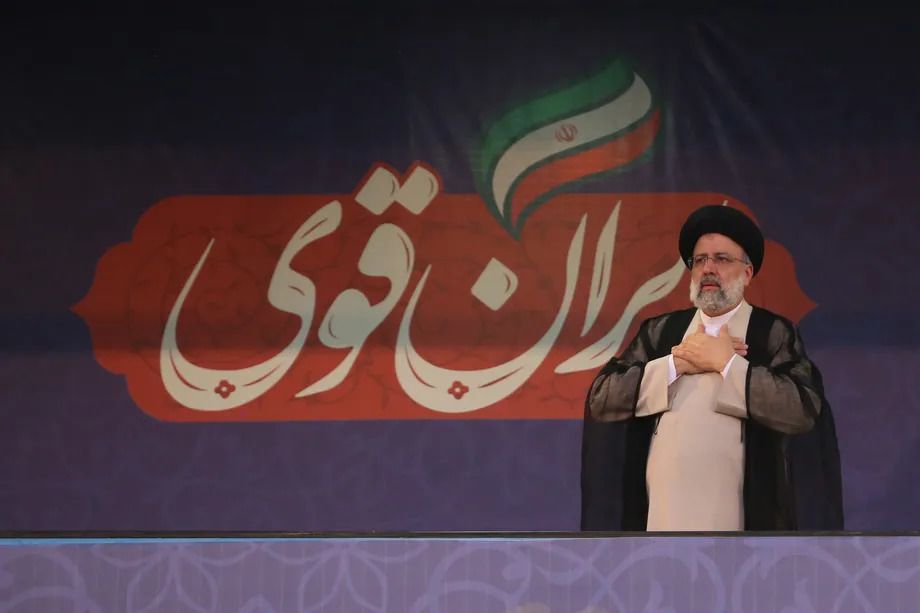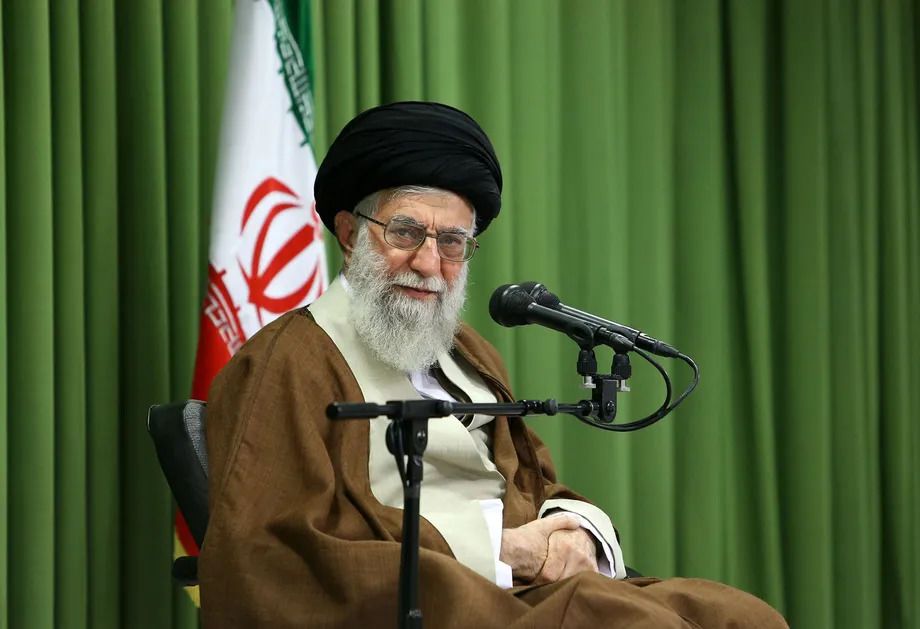
Iran has a new president. He could end up being much more than that.
He’s a hardliner and staunch critic of the West, but he’s not expected to fundamentally change Iran’s policy toward the US. He’s loyal to the supreme leader, but he may soon replace him. And he’s just been imbued with substantial power, but he’ll mostly use it to do his boss’s bidding.
That’s what the world can expect from new Iranian President Ebrahim Raisi, who won the country’s presidential election on Friday — a contest that was heavily rigged in Raisi’s favor — with extremely low voter turnout.
Raisi is an ultraconservative judge currently serving as head of the country’s judiciary. He’s long faced allegations of involvement in severe human rights abuses, including the mass execution of thousands of prisoners, mostly political dissidents and protesters — activities for which Raisi was sanctioned by the Trump administration in 2019.
As president, Raisi will face several daunting challenges. He’ll have to negotiate America’s reentry into the 2015 nuclear deal. He’ll have to address both the sharp economic downturn and the coronavirus pandemic plaguing his nation. And he may have to oversee the succession of 82-year-old Supreme Leader Ayatollah Ali Khamenei — Iran’s first real power change in over 30 years.
Experts say Khamenei orchestrated Raisi’s election victory, mainly by barring strong challengers from competing against him, to ensure the supreme leader’s vision for Iran far outlives him.
“Khamenei wants someone who sees the world the way he sees the world,” said Ilan Goldenberg, director of the Middle East security program at the Center for a New American Security think tank in Washington, DC. As a former student of Khamenei’s who was appointed to every major job he held by his mentor, Raisi is a safe bet to assure the supreme leader’s legacy.
But there are still open questions about what Raisi’s ascent to the presidency will mean for the future. One is how a hardliner will govern as president, especially now that his ilk will control all major branches of Iran’s government. Experts predict the country will become more repressive internally and continue its combative foreign policy. “They still won’t trust the United States,” said Holly Dagres, a UK-based fellow at the Atlantic Council, a Washington think tank.
The other, arguably bigger question is whether Raisi’s rise to the presidency makes him the clear frontrunner to replace Khamenei when the aging leader dies. If that’s the case, then how the 60-year-old Raisi governs could offer clues to how he might lead Iran for decades to come. The money is on Raisi following in his mentor’s footsteps.
“Raisi owes everything he has to Khamenei,” said Ali Vaez, the International Crisis Group’s Iran project director.
Who is Ebrahim Raisi?
Weeks before the June 18 presidential election, it was clear that Iran’s leadership wanted Raisi to win.
The regime allows only those deemed loyal enough to the supreme leader to run for president, but it also likes leaving a veneer of democratic legitimacy to the election. This time, though, Khamenei and the 12-person Guardian Council responsible for approving candidates openly removed that veneer. They disqualified anyone who could possibly challenge Raisi, effectively guaranteeing his victory — perhaps seen as a necessary move after Raisi surprisingly lost in 2017 to current President Hassan Rouhani.
The move was so blatant that even the Islamic Revolutionary Guard Corps, the elite security and military organization responsible for the protection and survival of the regime, called the election undemocratic.

A look at Raisi’s past makes clear why the regime would go to such lengths to make him the new president.
He was born in Mashhad in Iran’s northeast, the same city Khamenei hails from, and can trace his lineage back to the Islamic Prophet Mohammed (which allows him to wear a black turban). Born to a clerical family, he received a religious education and achieved the status of a low-level cleric, but he never reached the status of ayatollah, the highest rank of Twelver Shia clergy in Iran.
Raisi instead joined Iran’s judiciary in 1981 and only four years later became deputy prosecutor general in Tehran, the capital. It was in that role in 1988, toward the end of the Iran-Iraq war, that Amnesty International alleges Raisi was associated with the extrajudicial killings of political prisoners. “Between 4,500 and 5,000 men, women and children were killed in the summer of 1988 in prisons across Iran,” the human rights group wrote in 2013. (Raisi’s defenders deny his involvement.)
Raisi continued to climb Iran’s power ladder, helped largely by Khamenei’s appointment in 1989 as supreme leader. Among other positions, Raisi went on to become the prosecutor general of Tehran in 1989, the first deputy chief justice of Iran in 2004, and the country’s attorney general in 2014.
In the last five years, Raisi became one of the nation’s leading regime figures. In 2016, Khamenei named him head of the powerful Astan Quds Razavi foundation, a supposed charitable group that manages the important Imam Reza shrine and other institutions. (The Trump administration in January sanctioned the foundation for its immense wealth and close ties to the supreme leader.)
Then in 2019, Khamenei gave Raisi the reins of Iran’s judiciary, where he used his perch to ostensibly tackle corruption, though some say he mainly targeted his political opponents. That same year, Raisi was elected vice president of Iran’s Assembly of Experts, which — interestingly enough — will choose the next supreme leader after Khamenei dies.
Such an inexorable rise could only end up with Raisi as Iran’s president, which will make him arguably Iran’s second most powerful official after Khamenei himself. But what precisely he’ll do with that power isn’t entirely clear.
From President Raisi to Supreme Leader Raisi?
Raisi hasn’t offered up much of a platform during the election, partly because he hasn’t really needed to craft a winning message, what with the election having already been in his favor.
But experts note that he’s long been ultraconservative on domestic issues, such as on stamping out political dissent and women’s rights, and on foreign policy he remains extremely critical of the West.
However, the potential good news for the Biden administration is that Raisi has shown a willingness to abide by the terms of the 2015 nuclear deal, which restricted Iran’s nuclear program in exchange for the lifting of sanctions.
“Let’s make it clear. We would definitely abide by the [deal] in the format that was approved with nine clauses by the supreme leader, as it [is] a contract and a commitment that governments must abide by,” Raisi said during a June 12 debate.

He even attacked one of the other candidates as well as the current Rouhani government by saying only he could keep the agreement intact. “Gentlemen, you cannot implement the JCPOA,” Raisi said, using the acronym for the deal’s official name, the Joint Comprehensive Plan of Action. “The JCPOA must be implemented by a powerful government. Foreign power is an extension of internal power.”
It seems contradictory that Raisi would consistently rail against the West but also want the nuclear accord to survive. But experts says the cleric’s stance makes sense: Khamenei had allowed the initial agreement to happen, and the lifting of sanctions would greatly help the struggling economy.
Ultimately, though, analysts told me Raisi’s main job will be to help Khamenei realize his vision of a second Islamic Revolution, one led by the nation’s youth. Many of the nation’s leading clerics are 70 or older, and it has been over 40 years since the 1979 Islamic Revolution. Khamenei wants changes made to Iran’s government to foment a continued feeling of revolution among the next generation of Iranians.
To do that, the International Crisis Group’s Vaez says, Khamenei may change the government from a presidential to parliamentary system, removing a key source of friction between the offices of the president and supreme leader, and making it easier to pass reforms through government on party lines. Raisi likely won’t put up much of a fight during such shifts, and he’ll have few qualms about quashing dissent from the public or the government.
“Through this election, [Khamenei] wants to get a pliant president along with a pliant parliament so that he doesn’t have any resistance to internal changes,” Vaez told me.
By effectively handpicking Raisi, Khamenei aims to ensure his legacy and influence is lasting. “He’s thinking about after he’s gone, and this is how he’s doing it,” said the Atlantic Council’s Dagres.
So is Raisi fine with just being Khamenei’s puppet? Not quite, experts told me. Rather, it’s basically a trade: Raisi will do Khamenei’s bidding now, so that when the time comes to select a new supreme leader, Raisi is the odds-on favorite.
What Raisi’s election as president really means, then, is the arrival of a major new figure on the world stage. This is Raisi’s test before potentially taking the reins of Iran, and few believe he’ll throw away his shot. “Something big is happening in Iran,” Dagres told me.











